Use These Ninja Hacks to Get More WooCommerce Sales
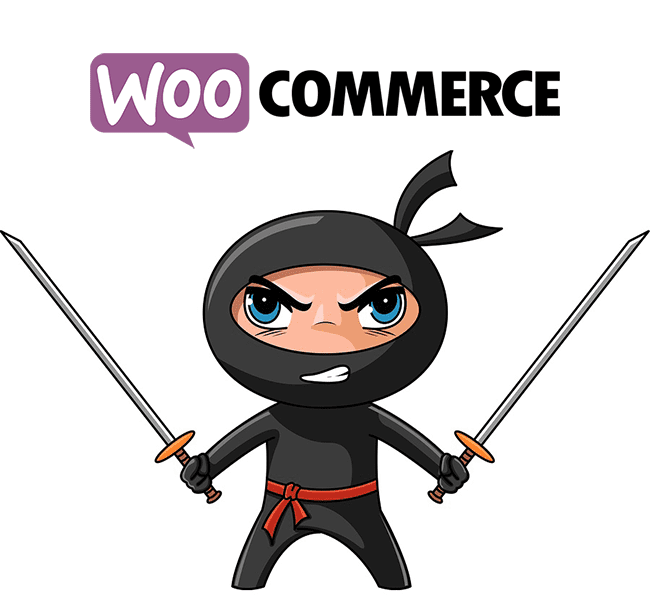
WooCommerce is a powerful ecommerce plugin for the popular WordPress backend. According to a WooThemes blog, it’s one of the most widely used shopping carts in the world. A quick look at the top WooCommerce plugins and apps finds that there are some powerful and cost-effective additions you can make to amplify your marketing efforts. But just how popular is this shopping cart?
As a matter of fact: WooCommerce accounts for 10.80% of all shopping cart users, with Magento coming in at a close second place at 10.07% respectively. Need even more WooCommerce statistics to wrap your mind around? Take a gander at at these:
- Back in 2011, WooCommerce offered only nine official extensions and six official themes.
- By 2016, WooCommerce had been downloaded 13.8 million times and had more than 1 million installations.
- WooCommerce is currently translated into 26 language.
- The online shopping cart has more than 400 extensions.
- WooCommerce powers 37% of all ecommerce sites.
- 28,864 of the world’s top million websites (0.6% of all websites or 3.7% of the top million sites) use WooCommerce.
If you are considering opening up a brand new online shop, there are ample reasons to consider using WooCommerce as your preferred ecommerce platform. To help you get off to a running start, here are some proven and timeless WooCommerce marketing tips you can use to make strides early.
Pictures Are Golden
The old-time saying that a picture is worth a thousand words rings entirely true here. The brain actually processes images 60,000 times faster than it does words, as it’s tethered to the information that’s being interpreted by the retina and digested by the brain.
According to studies that were conducted by 3M Corporation, 90% of all information that the brain receives is visual; and, furthermore, 40% of your online shoppers will react to a good image versus text. Therefore, ensure that your product images evoke an emotional and a mental response. Choose your images wisely, and use them to best represent the wares that you have to sell, so you can attract more customers to your store.
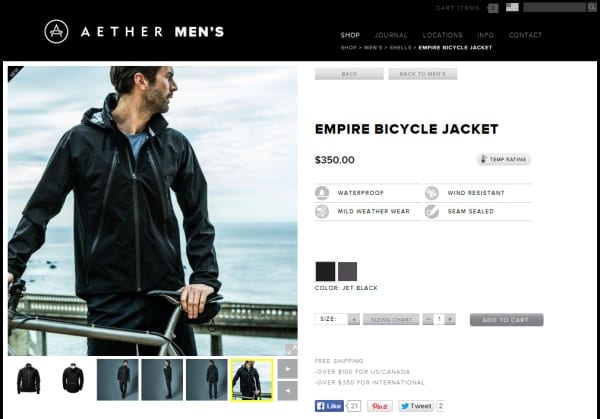
In this image, we can see that the Aether Men catalog clearly shows a confident 30s-something male wearing an attractive Empire Bicycle Jacket. Note that below the main image there are half a dozen other stock photos of the model, depicting him in different angles and views, in addition to there also being stock photos of the jacket itself and from multiple angles.
Clever Content Wins the Day
Images are worth a thousand words, but what about the thousand words that go beneath them? Augmenting your product with an informative, attractive and veritable description is essential.
According to a Shopify blog, good copy consists of incorporating several vital steps when trying to lure in customers to your online store. They say that the usage and connotation of the word “you,” and variants and contractions thereof, signifies a more personal, mental association with the reader; and their innate connection to the products being offered at the online store.
What’s more, the blog also advises that you try to incorporate terminology like “new,” which, according to Dr. Bianca Wittmann, a cognitive neuroscientist who studies the effects of copywriting and online shoppers, the usage of the word “new” encourages a brave mental response; enticing shoppers to be bold and to try something different.

In this screenshot of an Apple ad, we can see how they use specific terminology to help users know that the product is new and also is a hot-seller. The description imbues the tenacity of the product being of a new design and of it featuring new technology, helping to attract shoppers to it.
Demographic Appeal
You want to take it a step further than just creating copy for your products or for your home page. It is very helpful to create a rich story about yourself and why you started your online store. A great example of this prose in motion can be found by visiting the Jack Rudy Cocktail Company’s About Page.
Note how the copy is succinct, engaging, direct and emotional, conveying a strong story that is convincingly in favor of the brand, and, more importantly, memorable. Another way to reach your shoppers is by blogging, one of the best ways to increase your website’s rank and drive targeted, organic traffic back to your website. A Hubspot study found that businesses that blog frequently actually attract 55% more visitors than businesses that do not.

This Home Depot blog shares creative ideas for creating special creations at your home. It offers a bounty of tips and DIY guides for target market customers of Home Depot, who in-turn frequent the site more often and use the ideas they find within, making more purchases from the home improvement store as a direct result.
Newsletters Are Powerful
Newsletters are an imperative aspect of reengaging customers and in attracting repeat sales. Assure that you have an easy-to-spot newsletter sign-up button that can encourage customers to subscribe. In addition, offer a bonus when they sign-up to your mailing list, like a coupon code good for 10% off their next sale or a free, expedited shipping upgrade.
According to Convinceandconvert.com, 44% of people who receive an emailed newsletter will make a purchase within 12 months, and 33% of those who receive such newsletters will actually open them.

This newsletter screenshot shows creatively engaging methods of how you can inform customers about new products and specials while offering them a chance to take advantage of the deals that you are featuring. It opens by announcing a great sale for 80% off, leading customers to other products that are being featured in the newsletter.
Getting Shoppers Involved
Customers actually crave reviews and many are prone to writing them after the fact, too. Whether that’s regarding a positive or a negative online shopping experience with your store is entirely up to you.
An Econsultancy article, which was based upon a number of expertly sourced studies, found that 63% of customers are likelier to convert into sales at online stores that offer product reviews (iPerceptions, 2011).; and reviews by fellow shoppers are trusted 12 times as much as any product description that you could ever write (eMarketer, February 2010).

This screenshot from Amazon can help you better understand the power of the online review. Notice how many five-star reviews this particular product has. Which would you be likelier to purchase: the product with the hordes of top-notch reviews and comments, or the one that has none?
SEO is the Foundation
Just because you might not be an SEO guru does not mean that you can’t optimize your WooCommerce store for SEO. Many WooCommerce users actually piggyback their shopping cart with a powerful WordPress website. That’s because it’s the most popular open-source website creator in the world, and also because it has millions, quite literally, of different plugins, including plenty of free WordPress SEO Plugins.
If you are already following the aforementioned tips and are creating good content, assure that people can actually find it by optimizing it for the major search engines with proper SEO. You can glean some expert ecommerce SEO optimization tips from this helpful Search Engine Watch blog.
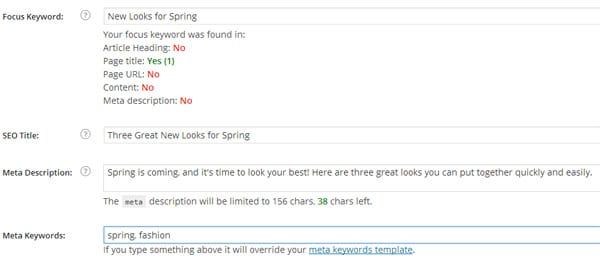
A number of free WordPress plugins exist that can help you more easily optimize your WooCommerce store for SEO. Make sure you read up on tips on how to use these plugins and that you are spending enough time optimizing your website, all so that your products and content can be found by users who are searching for the wares that you have to offer.
Offer Shoppers a Lifeline
Your shoppers want online support while they are making a purchase, or many of them may abandon their shopping cart outright. According to a Forrester Study, 44% of online shoppers say that having live support available to assist with answering any questions during their purchase is essential in them making the purchase.
A KissMetrics blog offers even more insight into how featuring a live chat option alongside of your shopping cart can help increase sales. Consider options like Olark’s chat support service, which can enable you to integrate a powerful and affordable live chat support plugin into your WooCommerce store.
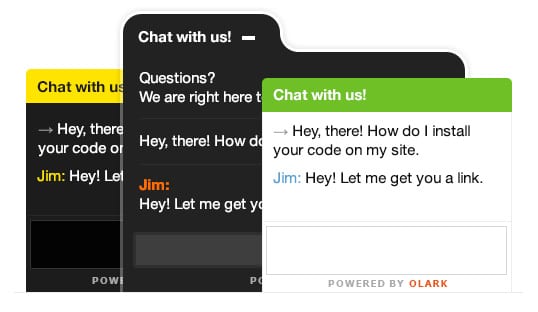
Live chat is essential in providing the support that your customers want when making an online sale. Many customers have important questions that they want answered before they make an online purchase. Offering this support will only help to increase your shopping cart conversions.
Wishlists Are Must-Have
You have likely seen it before at websites like Amazon or Zappos, EBay and Overstock.com: the online wish list. By offering your prospective customer with a means to do some wishful shopping now, you are exponentially increasing the likelihood that they later return to your online store to make that purchase in the future. You can easily integrate a wish list plugin for WooCommerce by using this helpful WooCommerce Wish Lists plugin catalog.
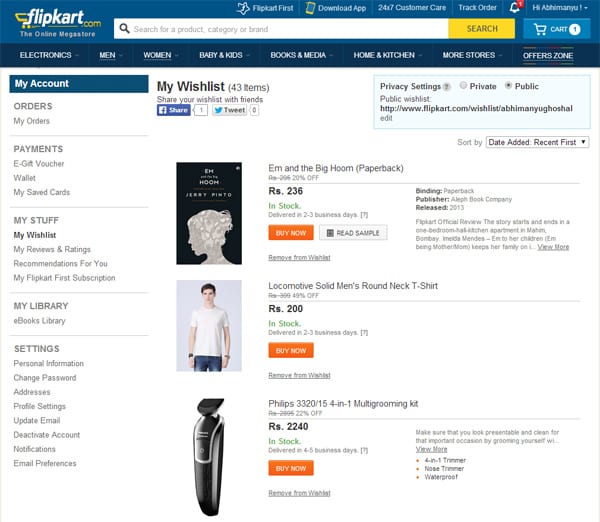
Wish lists are powerful tools that can help you reengage users after the fact. They can shop for items that they want to purchase at a later date, encouraging them to return in the future to make a purchase. You can also email them a reminder about their wish list items, too, thus further increasing the chances a future sale.
Free Shipping + Easy Returns Matter
Make sure that your customers know that you have affordable (or free) and fast shipping. According to a study by E-Tailing Group, 73% of those polled say that free shipping is a “critical” element to them making a purchase at any online store.
A related Forrester study finds that 22% of all shoppers will abandon their shopping cart and rescind an online purchase if shipping costs are not stated upfront. The main point here is simple, and it’s one we’ve made many times in the past: Customers want fast, free or low-cost shipping, or they’ll just shop somewhere else that offers it.
 In a day and age of Amazon, you can’t afford to turn down any prospective sale due to shipping costs. If you’re struggling to make shipping costs work in your favor, consider offering a free shipping threshold to close the sale. It may just make the difference in your end of day numbers.
In a day and age of Amazon, you can’t afford to turn down any prospective sale due to shipping costs. If you’re struggling to make shipping costs work in your favor, consider offering a free shipping threshold to close the sale. It may just make the difference in your end of day numbers.
By this same notion, your prospective and existing customers also want hassle-free, and for the most part, no-questions-asked returns. Offering this key amenity is one of the surest staples to increasing the average order value and improving customer loyalty and retention in the long-term.
But how much of an impact does hassle-free returns have on your bottom line? According to the most recent statistics on ecommerce returns: 66% of customers read your return policy before purchasing; 80% want free return shipping; 58% want no-questions-asked returns; and all customers want at least 30-45 days to return a product they’ve purchased online.
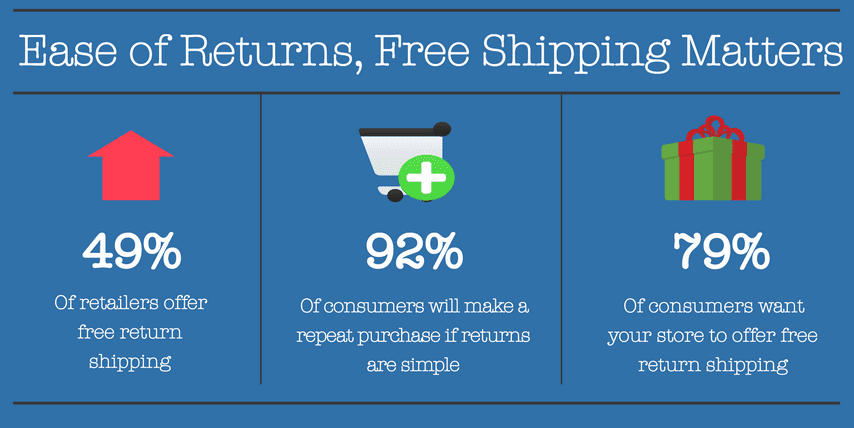
Offer this to your customer base, and your soars will improve. So will repeat purchases from customers, average order value and word-of-mouth referrals. If you need more tips, we’re here to help. Take a look at our white paper: The Ultimate Guide to Ecommerce Returns.
Need even more tips?
We’ve got you covered with this detailed infographic on WooCommerce statistics to help you better decide if this WordPress shopping cart is the right fit for your ecommerce needs. Along the way, make sure you read our related guide, which can help you decide what plugins and WooThemes to add for maximum impact: 5 WooCommerce Marketing Plugins You Can’t Live Without.
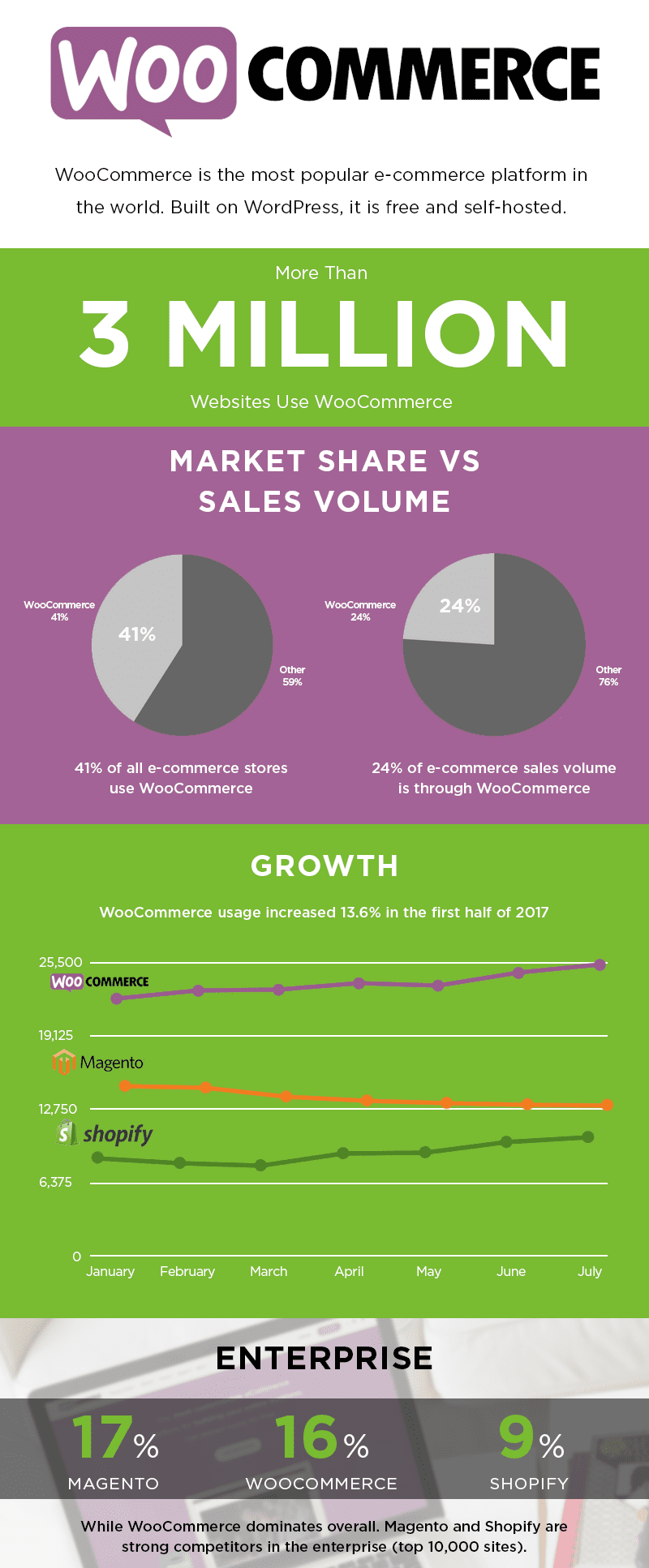
Share On:









